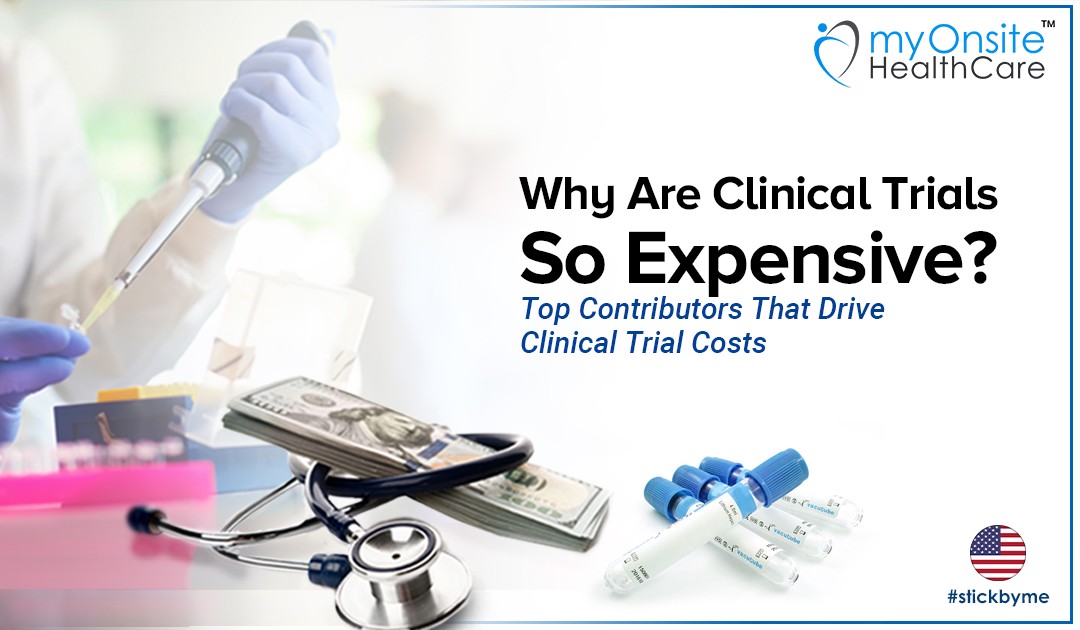The increasing costs for clinical trial implementation have caused wide-spread concerns and are impacting on the development of new drugs brought to market. Innovative strategies to reduce costs while maintaining study integrity are of high interest.
Financial Costs associated with bringing new drug to market is estimated between $161 million and $2.6 billion.
Clinical trials are a critical component of the drug development process. It is estimated to take between 10-15 years to bring a drug to market, i.e., to conduct all necessary testing and approvals before it can be used by the public. Financial costs associated with bringing a new drug to market are estimated between $161 million and $2.6 billion. Clinical trials are the biggest contributors to these enormous cost estimates. Why do clinical trials cost so much money? What are ways to potentially cut down on these costs?
According to Grand View Research, a market-research company, global spending on clinical trials is estimated to reach $68.9 billion in spending a year by 2025. Average per-study costs across all therapeutic areas increase as clinical development proceeds through the drug development process. A breakdown of the average per-study costs by phase (in $ millions) across therapeutic areas is displayed below:
| Drug Development Phase | U.S. estimated Costs |
| Phase I | $4 million |
| Phase II | $13 million |
| Phase III | $20 million |
| Regulatory Review Phase | $2 million |
The therapeutic areas with the highest average per-study costs (combined for Phases I, II and III) include pain and anesthesia ($71.3 million), ophthalmology ($49.9 million) and anti-infective ($41.3 million) clinical trials. Factors that contribute the most to clinical costs across all trial phases include clinical procedure costs (15-22%), administrative staff costs (11-29%), site monitoring costs (9-14%), site retention costs (9-16%) and laboratory costs (4-12%). Of note, patient recruitment and retention costs can also weigh heavy on trial operations and may account for up to 25% of overall trial costs (totaling an average of $805,785 for combined clinical trial phases). Up to 80% of clinical trial delays are due to enrollment and retention of participants. Limited clinical sites, lack of patient population awareness, accessibility, and study protocol design are contributors to participant enrollment and retention rates. Altogether, these costs and trial complications highlight the inefficiencies of trial operation which are deterring the advancement of potential life-changing technologies.
The drug industry is exploring and utilizing innovative technology-driven solutions to streamline clinical trial operations to reduce costs. For example, home wearable devices and other digital technologies are already transforming trials by providing an avenue to transition structured, time-point and in-clinic specific assessments to continuous, objective measures. Patient outcomes such as levels of physical activity or quality of sleep can be conveniently measured by a wearable device. In parallel, technologies enabling remote patient monitoring or management provides more consistent engagement with trial participants and the ability to further share health status information. These metrics allow for more precise outcome data collection for clinical trials.
Advancing clinical research strategies through the use of customized mobile services is another technology posed to have high impact in the field. As laboratory costs, which include biological specimen or sample collection, are a significant contributor to clinical costs, mobile phlebotomy services represent a targeted area of interest. A variety of biological sample analyses are of importance in drug studies across all medical conditions. These samples are used in drug development studies for pharmacological analysis and are typically assessed repetitively and at frequent intervals. Mobile phlebotomy services support clinical research initiatives by directly meeting with patients thereby improving patient compliance with the study protocol and reducing transportation and clinical resource costs. In addition, participant convenience is critical to patient enrollment and retention in clinical trials. Participant replacement or loss of data due to missed visits and/or participant withdrawal from the study can significantly increase costs or even disrupt the study integrity. Improving participant enrollment and retention by utilizing mobile healthcare services provides many advantages to reduce study costs. Advancing trial operations through the integration of mobile services, such as phlebotomists for biological specimen collection, are one aspect of trial conduct that provides direct impact on study outcomes.
myOnsite Healthcare is a mobile phlebotomy company with extensive service features that support trial initiatives. Integration of mobile phlebotomy services scalable and flexible for various indications and clinical trial needs prove valuable in multiple market opportunities. myOnsite provides an avenue to reduce study costs, improve patient compliance and convenience while maintaining study data integrity. myOnsite has the expertise to offer their mobile phlebotomy services to aid in comprehensive trial support. myOnsite offers study specific integration of service features necessary for the study, negating the need for an in-clinic visit (e.g., remote collection of biological specimens from a certified phlebotomist).
Do you need mobile phlebotomy services for your clinical research initiatives?
MyOnSite has an extensive network of expert phlebotomists that can be assembled to support your clinical research needs. Please Contact Us to discuss our mobile phlebotomy strategies.

